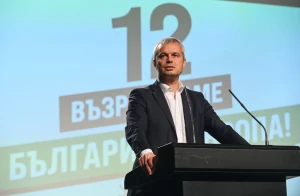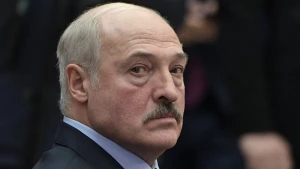
Ukrainians watch Russian TV shows while living under Russian bombs. How can we explain it?
Let's start with the statistics, where the comforting and the concerning stand side by side
First, let's discuss the positive statistics. According to a survey conducted by the "New Image Marketing Group," 56% of respondents reported watching Ukrainian productions more frequently. Another survey by Gradus Research showed that one-third of Ukrainians regularly watch Ukrainian movies on various platforms. Additionally, the "New Image Marketing Group" reported that between 68% to 81% of Ukrainians have stopped consuming media products from Russia, including official and "oppositional" socio-political content. In other words, trust in the so-called "good Russians" is steadily decreasing.
However, there is also a concerning piece of data. The same survey conducted by the "New Image Marketing Group" reveals that during the winter power outage, the top 10 YouTube searches made by Ukrainians included Russian TV series. To elaborate, people anticipated a long power outage, so they wisely downloaded Russian-made series on their smartphones and tablets in advance. It is worth noting that Ukrainian people more often reject Russian musical content.
“People anticipated a long power outage, so they wisely downloaded Russian-made series on their smartphones and tablets in advance. It is worth noting that Ukrainian people more often reject Russian musical content”
To provide greater clarity, it should be noted that Russia is currently bombing Ukrainian cities and villages, causing the destruction of many of them. Air alarms have become a regular occurrence, prompting citizens to take measures for personal safety. Moreover, Russia has systematically destroyed Ukraine's energy infrastructure, leaving many without electricity and plunging them into a state resembling the Middle Ages.
Despite all this, some Ukrainian citizens stubbornly continue to consume Russian entertainment content, such as popular Russian series featuring actors such as Mashkov, Porechenkov, and Pevtsov, who are known to be right-wing and pro-Kremlin. Despite this knowledge, data shows that viewers of these series still refuse to consume Russian informational and political content.
While the united news marathon remains questionable, the names of these "pest" actors are still mentioned during the marathon's broadcasts. Additionally, the Russian-language channel Freedom, which has received over 200 million hryvnias from the Ukrainian budget, is producing an entire series about these actors called "The Secret Life of Matryoshkas." It can be assumed that the viewership of the united marathon, Freedom, and Russian propaganda series are one and the same audience. Even though this audience is aware of the anti-Ukrainian activities of these Russian “cultural” figures, they still continue to consume their content on a regular basis.
“It can be assumed that the viewership of the united marathon, Freedom, and Russian propaganda series are one and the same audience. Even though this audience is aware of the anti-Ukrainian activities of these Russian cultural figures, they still continue to consume their content on a regular basis”
According to media expert Halyna Petrenko, a part of Ukrainians still watches Russian films and television programs despite the ongoing war in Ukraine. Petrenko attributes this to the wrong perception of these viewers, who consider Russian series about security forces, military, and police as a form of entertainment, without connecting them to the war. For them, Russian TV shows, whether they are about love or war, are primarily a fairy tale, disconnected from the reality of the Russian invasion and the violence it has caused in Ukraine. Petrenko suggests that Ukrainians who watch Russian content in bomb shelters may believe that the Russians attacking Ukraine did not watch the same movies about sincere, soulful Russians, and if they did - it might have prevented the war from happening in the first place.
It is possible in theory and practice to remove Russian content from YouTube and restrict access to it, even for the most avid supporters. Totalitarian regimes have successfully done so. However, despite notable signs of authoritarianism in the current government, even the all-powerful Head of the President's Office, Andriy Yermak, will not order such a purge, not because of his democratic values, but because nobody will carry out the order. It is simpler to remove some undesirable Ukrainian channels from the united TV marathon, but nobody has considered taking them off YouTube yet. Achieving this would require a different level of political will and technical resources altogether.
“Even the all-powerful Head of the President's Office, Andriy Yermak, will not order such a purge, not because of his democratic values, but because nobody will carry out the order. It is simpler to remove some undesirable Ukrainian channels from the united TV marathon, but nobody has considered taking them off YouTube yet. Achieving this would require a different level of political will and technical resources altogether”
It is apparent that those who have free access to Russian content can easily obtain it within minutes. However, there is still a segment of Ukrainians who prefer consuming Russian media despite the ongoing blackouts, air strikes, and conflicts with their frontline neighbors. Several interrelated components contribute to this phenomenon.
The first component is the power of habit. Since 2000, Ukrainian television executives have actively collaborated with Russia, becoming ideologically and financially dependent on it. As a result, Brazilian, Mexican, European, and American serials have been gradually replaced with Russian ones on Ukrainian airwaves. The propaganda of the "Russian world" is often embedded in these series, making it challenging for viewers to abandon their decade-and-a-half-long habit. Like any addiction, whether it is alcohol, drugs, tobacco, food, gambling, or even sex, giving up a habit is difficult.
The second component is the comprehensibility of the content. This aspect is not just about the Russian language; even high-quality American, French, British, or Polish TV series dubbed in Russian may not gain as much popularity among average viewers as a poorly made Russian one. Consumers of Russian media consider it to be "our cinema" for themselves, demonstrating their desire to watch something that feels close to them, regardless of its quality. It allows them to recognize familiar realities and experience positive emotions. Until the Russian invasion, Ukrainians were immersed in the Russian infospace, which led them to associate Russian realities with their own. Even though Russian series depict a parallel reality and a non-existent Russia, they still appeal to Ukrainians.
The danger lies in the absence of alternative Ukrainian content. While Ukrainian cinema has finally begun to reach its audience and is appreciated by a third of Ukrainians, it was created before 02/22/2022, and unfortunately, the supply is limited and will eventually run out. Additionally, Ukrainian TV series are almost non-existent, except for a few comedy series, which are purely for entertainment and non-competitive. Furthermore, some odious TV series with Ukrainophobic actors and Putin's portraits in the frame are readily available on the legal Megogo platform, which is a Ukrainian manufacturer since "Kvartal`95 Studio" has Ukrainian citizenship. If such shows are allowed, why not watch Russian propaganda shows?
It is difficult even for critical thinkers to comprehend why things are happening the way they are. The government should not interfere in a citizen's private space, making it challenging to eliminate Russian content from some Ukrainians' private space. Enlightenment efforts may not be successful since enlightened individuals lack the necessary resources. Sadly, only a Ukrainian victory in this war can have a significant positive impact on the private space of some irresponsible citizens of Ukraine.
Special for Espreso
About the author: Andriy Kokotiukha, writer, screenwriter.
The editors do not always share the opinions expressed by the blog authors.
- News












































